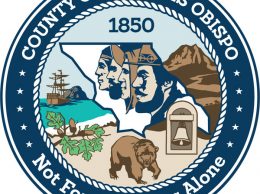Business lessons learned in fall disasters are lost on politicians in 2012

As a small-business owner, I’ve gotten used to the bumps and bruises that go along with the job.
Employees don’t get along, computers are outdated as soon as they’re replaced, websites go down, merchant fees go up and worker’s comp is a Rubik’s cube of paperwork. Don’t even get me started on the cost of employee health care — something that even Obamacare doesn’t require me to provide to our staff.
Like my peers up and down the Coast, I’ve learned to square my shoulders, prepare for the worst and keep plugging along. But what nobody can anticipate are the big disruptive events that pose great peril for a small company such as ours. As former Publisher George Wolverton described it, you feel like a peanut floating on the ocean with a big storm on the horizon.
Three times during the 12-year history of the Business Times, those storms have tossed us around pretty well. All of them have come during the first two weeks of September.
The first was the Sept. 11, 2001 attacks, which came literally out of the blue. I view them as the biggest and most catastrophic failure of government intelligence-gathering since Pearl Harbor; I still get angry about the billions of dollars we wasted building a huge spy apparatus that utterly failed on that fateful day.
Our fledgling company had already slimmed down quite a bit to deal with the dot-com bust, but the psychological blow of 9/11 was felt from coast to coast.
It created a shockwave around the nation that reverberates to this day.
In September 2005, we watched in horror as Hurricane Katrina made landfall at New Orleans and, after seeming to miss the city, unleashed devastating floods that gave us the feeling of helpless bystanders while people pleaded for help from rooftops. Katrina was a made-for-television event that made us feel vulnerable to the fury of nature unleashed.
In September 2008, I awakened on a Monday morning to the news that Lehman Brothers had collapsed, that Merrill Lynch, teetering on the brink of failure, was bought by Bank of America and that the nation’s financial system was locked up and on the verge of a total meltdown.
Then came the big debate in Congress over bank bailouts, and another free fall. There were questions about whether our free-enterprise system itself would survive.
Several million small-business owners went to work that day not knowing if their bank would be around long enough to finance the next payroll, not knowing if their credit lines would be called, not knowing if they would be able to finance the raw materials needed to keep business moving.
Many of America’s largest companies — including large news organizations, huge banking enterprises, some large law firms and yes, GM and Chrysler — didn’t find a path out.
But small-business owners went to work during the next few weeks and months. Many cut their own pay and found a way to navigate through. My heart goes out to the owners who put it all on the line, ate through their savings and did not get to the other side.
In the case of the Business Times, we laid off one employee, left a position vacant and slimmed down our overhead quite a bit. We were fortunate that our banking relationships weren’t disrupted and that my own personal finance strategy had been to reduce debt and increase cash as we headed into the crisis.
The lessons of the three crises — 9/11, Katrina and the Lehman collapse — are hard to put into words. You need absolute conviction, the ability to persist in the darkest moments and a personal balance sheet that can withstand missing a paycheck or two.
I don’t think very many people in politics have learned these lessons. If they did, the country would probably be a lot better off.
• Contact Editor Henry Dubroff at [email protected].










